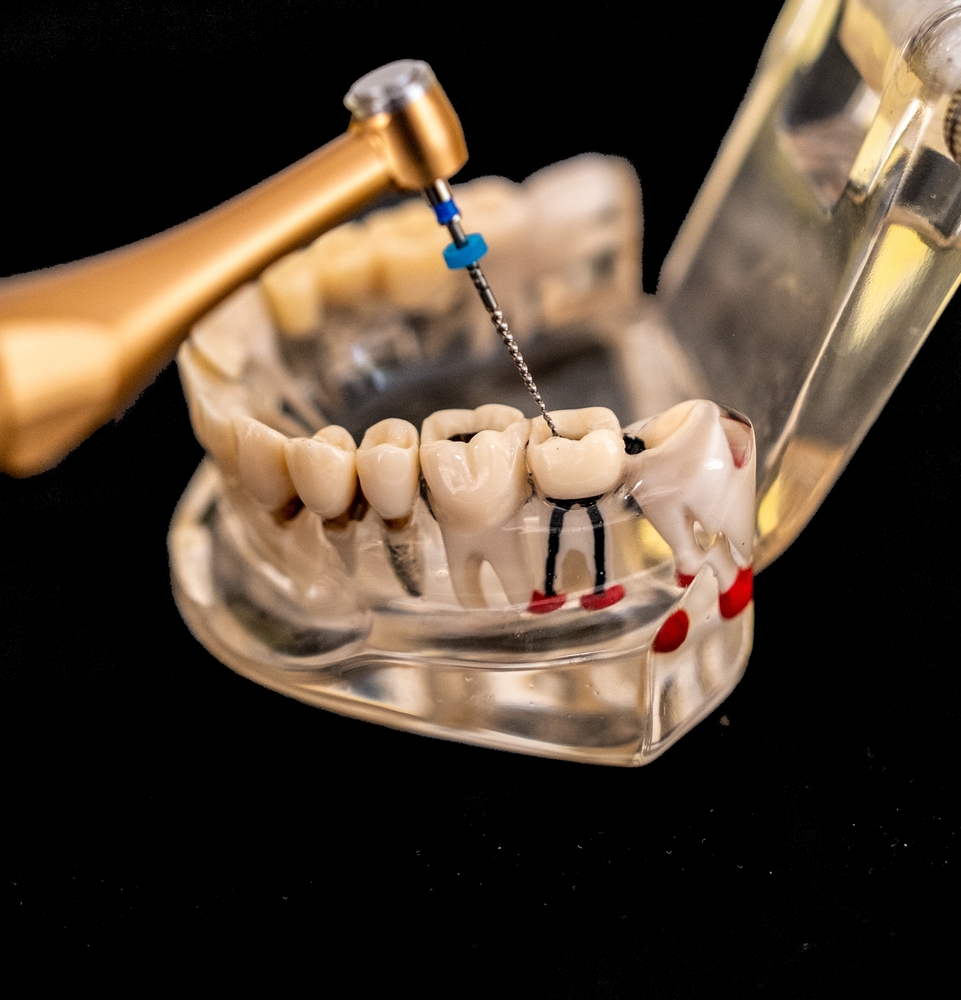A root canal is a dental procedure designed to save a badly infected tooth or a tooth with a damaged nerve (pulp). Each tooth has soft tissue, blood vessels, and nerves in it. If there is an infection in that tissue, the dentist will remove the tissue, fill the area and seal the tooth to prevent the infection from spreading.
Sometimes, you can still experience problems like root canal pain or swelling, even after root canal therapy in South Edmonton, you still have another infection in or around the tooth.
Common Symptoms of a Root Canal Infection
Sometimes, you won’t know right away if your root canal has become infected again, but you can look for clear signs to help you determine if you’re having an issue again.
Keep an eye out for these symptoms:
| Symptom | What It Means |
| Swelling in the gums | An infection may be spreading in the soft tissue around the tooth |
| Pain in the treated tooth | It may feel like a dull ache or a sharp pain |
| Bad taste or smell | It may be a sign of pus or drainage from the infected tooth |
| Sensitivity to hot/cold | Discomfort or pain even after root canal therapy |
| Fever | In some cases, the infection spreads and causes a body reaction |
| Pimple on the gums | This is known as dental abscess; often it is filled with pus |
If you or your child experiences any of these, then visit a dentist right away.
What Causes a Root Canal Infection?
There are several factors that can cause a root canal to become reinfected
- Re-entering of bacteria if the filling cracks or it is not sealed properly
- Deep cavities or new decay close to the treated tooth area.
- Cracks in the tooth that allow access to germs.
- Missed canals on the initial treatment (some teeth have more than one root or canal).
- A weakened tooth structure after a root canal, and no crown is placed on top.
To catch any drastic occurrences or to safeguard the tooth, it’s important to visit a dentist South Edmonton for regular check-ups.
How Often Do Root Canals Get Reinfected?
Many people ask, “How often do root canals get reinfected?” It doesn’t happen often, but it’s possible.
Studies show that about 5% to 15% of root canals may need to be treated again. A repeat treatment is called root canal retreatment.
Proper care and seeing a skilled dentist reduce the chances of reinfection.
How Is a Root Canal Infection Treated?
Your root canal may have become infected, but don’t worry; dentists know how to treat it. Here are some of the treatments that they may use
1. Root Canal Retreatment
The dentist will:
- Remove the existing filling material
- Clean the canal again
- Remove any infected material
- Refill and seal the canal
2. Surgery (Apicoectomy)
If retreatment does not work or if the infection is below the case, the dentist may need to do a minor surgery to remove the tip of the tooth root where the infection is and then seal it off.
3. Tooth Extraction
If the tooth is too broken down, the tooth may need to be extracted, and the dentist may suggest a dental implant or bridge.
How to Prevent Root Canal Infections
The good news is that most root canal infections can be prevented. Here are some simple tips
- Brush your teeth at least two times a day with fluoride toothpaste.
- Floss every day to remove food that gets stuck between your teeth.
- Get your teeth cleaned by the dentist near you regularly (at least every 6 months).
- Avoid biting on hard things that can crack your teeth.
- When your dentist recommends a crown on the treated tooth, get it.
- Don’t wait to get small cavities treated. Early treatment means you will not have to deal with bigger issues.
When to See a Dentist
If you feel any root canal swelling and pain, don’t wait. A dentist can take an X-ray, check your tooth, and decide the best way to help.
Delaying treatment can cause the infection to spread to other teeth, gums or even into the bone. That is why early care helps keep your mouth healthy and saves the tooth.
Wrapping Up
Root canals are a safe and effective dental procedure when they are performed or done by a professional dentist. However, with any dental procedure, complications can occur. If you experience any signs of pain, swelling, or bad taste — follow your instincts and arrange a dental appointment with your dentist.
Root canal swelling and pain can be scary, but fast treatment makes a big difference. Take care of your teeth every day and don’t skip your dental checkups.
Need Help with a Root Canal? Call Jagare Ridge Dental!
At Jagare Ridge Dental, we offer gentle and effective root canal treatment to help you preserve your natural tooth. Our team utilizes modern tools to clean the infection and stop the tooth pain. We make sure you feel safe and comfortable during every visit to our dental practice. If your tooth hurts or feels sensitive, don’t wait too long.
Need Help with a Root Canal? Call Jagare Ridge Dental Today! We’re here to care for your smile.
📍 Address: 2718 141 St SW, Edmonton, AB T6W 3Y9, Canada
📞 Call: (780) 760-8882
🌐 Book an appointment:https://www.jagareridgedental.ca/book-an-appointment/
